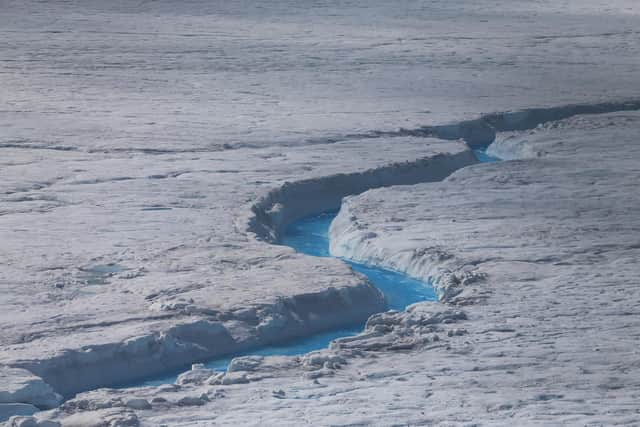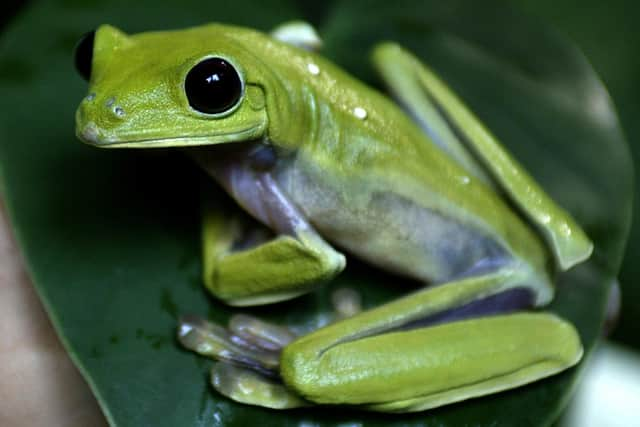Climate change: Humanity risks boiling like the proverbial frog as world steadily gets too hot – Professor Martin Rees
Details may still be uncertain, but the science has firmed up, and we have a longer timebase of data which reveal clear evidence of the warming that has already occurred. We can now proclaim more confidently than before that under ‘business as usual’ scenarios (where we remain dependent on fossil fuels) we can’t rule out, later in the century, really catastrophic warming, and tipping points triggering long-term trends like the melting of Greenland’s icecap.
Politicians focus on immediate threats like Covid-19. But they won’t prioritise the global measures needed to deal with climate change because its worst impact stretches beyond the time-horizon of most political and investment decisions. Moreover, it affects far-away countries more than our own. I fear our current stance resembles the proverbial boiling frog, content in a warming tank until it’s too late.
Advertisement
Hide AdAdvertisement
Hide AdWe should care about the life-chances of newborn babies who will live into the 22nd century, and those who follow them. So it’s surely worth taking pre-emptive action, paying an insurance premium as it were, to protect future generations against the worst-case scenarios. We should be mindful of the heritage we owe to our forebears; it would be shameful if we left our descendants a depleted planet.
Consider this analogy. Suppose astronomers had tracked an asteroid, and calculated it would hit the Earth in 2080, 60 years from now. Not with certainty, but with, say, ten per cent probability. Would we relax, say it’s a problem for 40 years’ time when people will be richer, and it may turn out it’s going to miss the Earth anyway? I don’t think we would. There would surely be a consensus that we should start straight away and do our damnedest to find ways to deflect it, or mitigate its effects.
Politicians will only take action if they feel the public is behind them. The direct influence of ‘backroom’ scientists on politicians is limited (except in emergencies like Covid-19).
Their voices must be amplified by charismatic individuals. Public opinion has been shifting gratifyingly, but it’s because scientists’ leverage on voters is echoed by charismatic individuals, especially the disparate quartet of Pope Francis, David Attenborough, Bill Gates and Greta Thunberg. Unsurprisingly, it’s the young, who may live to the end of the century, whose clamour for action is loudest and whose activism is welcome.


Changes in weather patterns across the world have another consequence. They lead to mass migrations, alterations in land use, encroachments on natural forests, etc. If humanity’s collective impact on land and climate pushes too hard, the resultant ‘ecological shock’ could irreversibly impoverish our biosphere. As extinction rates rise, we’re destroying the book of life before we’ve read it.
Already, there’s more biomass in chickens and turkeys than in all the world’s wild birds. And the biomass in humans and domestic animals is 20 times that in wild mammals.
A diverse ecology is crucial to human well-being. But the richness of our biosphere has value in its own right, quite apart from its benefit to humans. To quote the great Harvard ecologist EO Wilson “mass extinction is the sin that future generations will least forgive us for”. Biodiversity is, incidentally, the theme of another series of global conferences with the next China in 2022.
These challenges are immense, especially as they must be tackled against a backdrop where billions are in desperate poverty and the world’s population is forecast to rise from 7.8 billion to around nine billion by 2050.


Advertisement
Hide AdAdvertisement
Hide AdBut we shouldn’t shift from denial to despair. To insert some good cheer, there is a ‘win-win’ roadmap to a low-carbon future that can stabilise our world. Technically advanced nations like ours should accelerate research-and-development into all forms of low-carbon energy generation.
Solar and wind energy are the front-runners, but there are ‘niche’ opportunities in some nations: hydro and geothermal, for instance. The UK’s west coast has a specially high tidal range, offering opportunities for underwater turbines around capes, and tidal lagoons in bays.
Although anything ‘nuclear ‘ is understandably controversial, I think we should attempt to restore the UK’s sadly depleted expertise in this area, and explore fourth-generation designs that could be safer and cheaper than existing power stations. Specially promising would be the development of small modular reactors, which could be factory-built and standardised.
We also need to focus on technologies where parallel progress is crucial, especially storage (batteries, compressed air, pumped hydro storage, hydrogen, etc). In the longer run, the world could benefit from a network of transcontinental grids to bring solar energy here from Europe’s sunnier south or North Africa, and to smooth over peak demand in different time-zones via east-west links, perhaps all the way to China.


Such policies should enable Europe and North America to reach net zero. But there’s something even more important. The faster these ‘clean’ technologies advance, the sooner will their prices fall so they become affordable to poor nations.
'Bending the trajectory' of emissions from these countries is crucial: unlike us, they need more energy per capita for their development (and their populations are growing). They must be enabled to leapfrog speedily to clean energy rather than building coal-fired power stations, just as they’ve leapfrogged landlines to smartphones.
We should be evangelists for new technology. Without it the world can’t provide food and sustainable energy for an expanding, more demanding population.
It would be hard to think of a more inspiring challenge for young engineers than devising clean and economical energy systems that can achieve net-zero for the world. And although the UK contributes little more than one per cent to global emissions, we can aspire to some benign ‘leverage’ if we can create a much higher percentage of the world’s clever innovations!
Advertisement
Hide AdAdvertisement
Hide AdProfessor Martin Rees is Astronomer Royal, a former president of the Royal Society and author of On the Future: Prospects for Humanity
A message from the Editor:
Thank you for reading this article. We're more reliant on your support than ever as the shift in consumer habits brought about by coronavirus impacts our advertisers.
If you haven't already, please consider supporting our trusted, fact-checked journalism by taking out a digital subscription.
Comments
Want to join the conversation? Please or to comment on this article.
